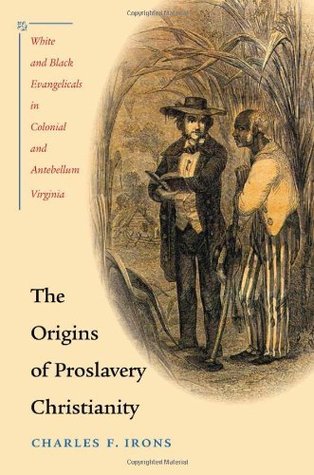He justified slavery as one of many hierarchical relationships approved by God in a 1757 sermon, The Duty of Masters to Their Servants. In what would become the most important plank of the proslavery argument, he taught that "the appointments of Providence, and the order of the world, not only admit, but require, that there should be civil distinctions among mankind; that some should rule, and some be subject; that some should be Masters, and some Servants. And Christianity does not blend or destroy these distinctions, but establishes and regulates them, and enjoines every man to conduct
...more
Welcome back. Just a moment while we sign you in to your Goodreads account.


